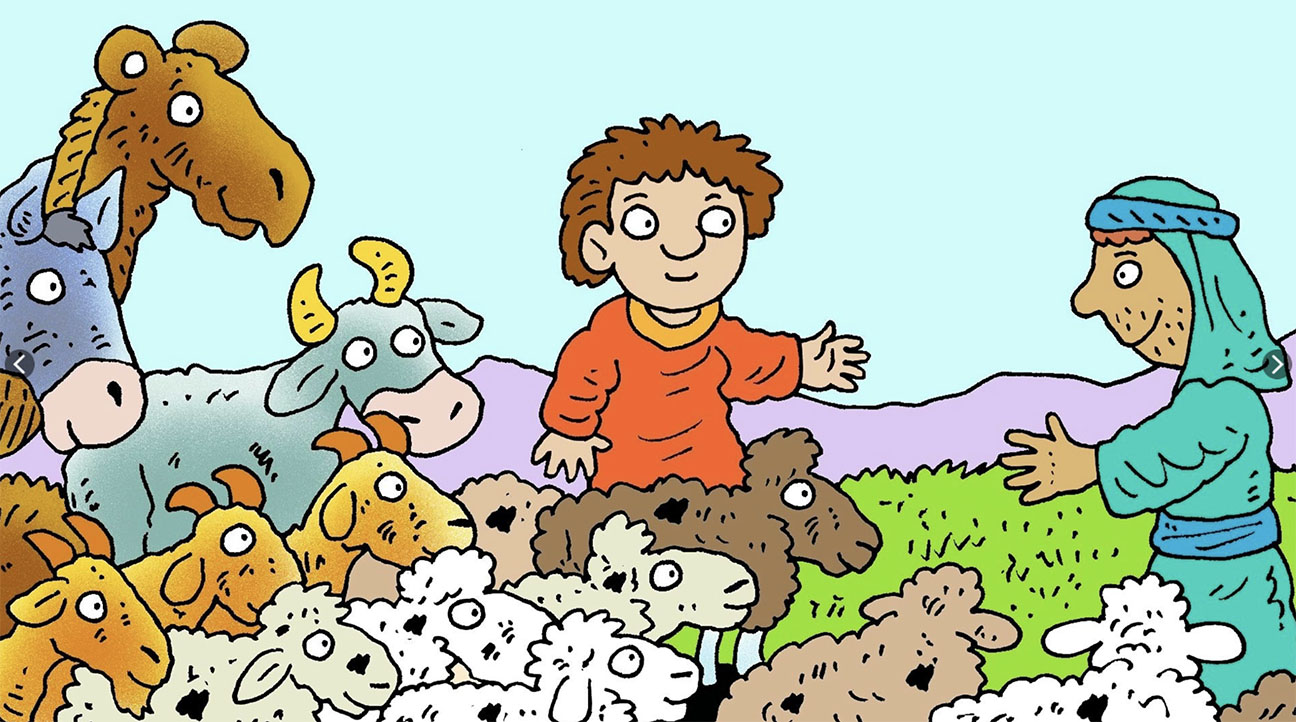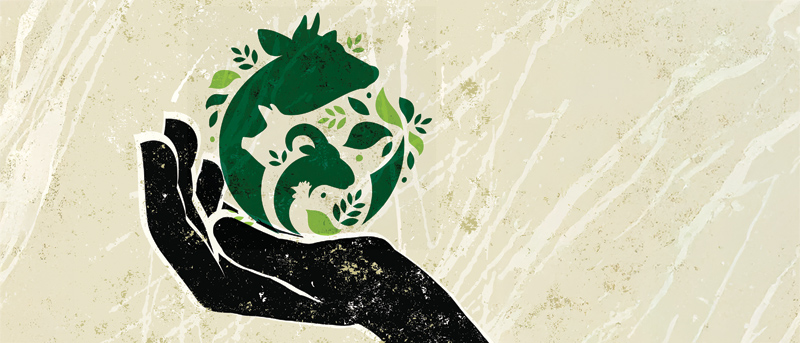
Amitai once thought his grandma was a wrestler,
since she had watched her grandson Darius wrestle,
not realizing that she’s far more like a Tesla,
by her poetic husband driven while he’s sessile,
and following all her directions for the rhymes he writes,
guided no less by Tanakh than his ménage’s muse,
and Amitai, whose flippant comments fuel his flights
of fancy about jolly geriatric ancient Jews,
as jolly as the hiddushim I’ve composed concerning modesty
Genesis ascribes to Jacob and to camels that were given
by him to Esau when returning from his odyssey,
hoping to be by the twin he feared like Danaos forgiven,
and himself hardly willing to go with him to Seir,
his goal the land of Israel, which was his home,
more literally than for Darius, Amitai, and Gershon Meir
who wrote this in less time than Esau needed to build Rome.
Gen. 32:16, listing the gifts that Jacob offered Esau when returning to the land of Israel from Mesopotamia, where he had established a family in his uncle Laban’s domain, writes:
גְּמַלִּ֧ים מֵינִיק֛וֹת וּבְנֵיהֶ֖ם שְׁלֹשִׁ֑ים פָּר֤וֹת אַרְבָּעִים֙ וּפָרִ֣ים עֲשָׂרָ֔ה אֲתֹנֹ֣ת עֶשְׂרִ֔ים וַעְיָרִ֖ם עֲשָׂרָֽה׃
30 milch camels with their colts; 40 cows and 10 bulls; 20 she-asses and 10 he-asses.
The Torah Temimah (Barukh Halevi Epstein) explains this verse in a accordance with Yerushalmi Ketubot 5:7. This states the reason the Torah does not mention male camels but only mentions female ones is because camels are modest animals and do not have intercourse in places where they can be seen. The term is a Janus one, the first word denoting weaning, a process in which milk is withheld, whereas the second word denotes provision of milk. The Janus nature of Jacob’s gift to Esau foreshadows his refusal to travel with him to Seir (Gen. 33:12-16).
Perhaps this explains the modesty of Jacob that is mentioned in the next story. Gen 32:25 states:
וַיִּוָּתֵ֥ר יַעֲקֹ֖ב לְבַדּ֑וֹ וַיֵּאָבֵ֥ק אִישׁ֙ עִמּ֔וֹ עַ֖ד עֲל֥וֹת הַשָּֽׁחַר׃
Jacob was left alone. And a figure wrestled with him until the break of dawn.
The Talmud learns this less from this verse, as the Torah Temimah points out, quoting Hullin 91a:
From his verse a wise man (Torah scholar) can learn that he should not leave his home at night while he is alone.
I think that the connection between the two events may be that they both involve modest descriptions of sexual behavior. In Gen. 32:26, an angel wounds Jacob sexually while wrestling with him, leading to an injury of what is commonly identified as his sciatic nerve, but is actually his male member, as I point out in Legal Friction (pp. 159, 255, 454, 468).
“Timeo Danaos et dona ferentes” is a Latin phrase that means “I fear the Greeks even when they bring gifts”. It is a warning to not trust enemies, even when they seem to be offering something enticing. The phrase is from Virgil’s Aeneid, where it is spoken by the Trojan priest Laocoön in reference to the Trojan Horse.
Gershon Hepner is a poet who has written over 25,000 poems on subjects ranging from music to literature, politics to Torah. He grew up in England and moved to Los Angeles in 1976. Using his varied interests and experiences, he has authored dozens of papers in medical and academic journals, and authored “Legal Friction: Law, Narrative, and Identity Politics in Biblical Israel.” He can be reached at gershonhepner@gmail.com.
























 More news and opinions than at a Shabbat dinner, right in your inbox.
More news and opinions than at a Shabbat dinner, right in your inbox.